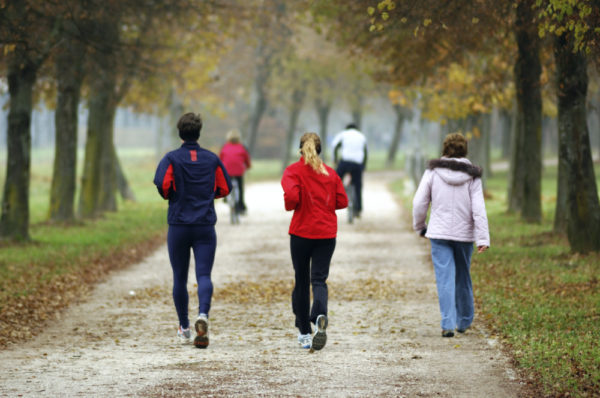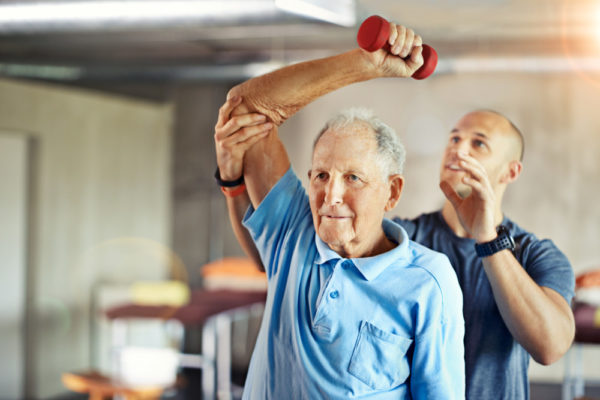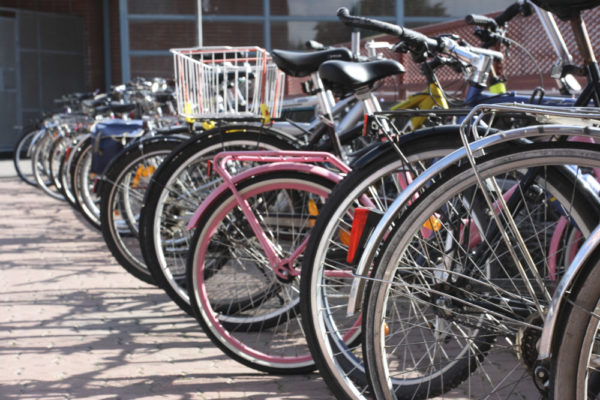In some local authorities, leisure services have been off the corporate radar due to them operating at a surplus and not presenting any significant problems or budget decisions. COVID-19 has resulted in those authorities having to provide financial support for the first time in years – many of their politicians will not have experienced this before. As a result, some local leaders are starting to question why their local authority is running leisure services at all. Maybe the problem is with the word ‘leisure’ – more on this later.

SLC is working hard with its local authority clients and strategic partners to respond positively to the challenges being faced. We are accepting the need to deal with high complexity, ambiguity and uncertainty by adapting our approach to finding a path towards a sustainable future.
We are having to learn, experiment, innovate and accept that we do not have all the answers.
We have developed our take on what we are calling the ‘Twelve new realities’ in what is a constantly evolving environment. There will undoubtedly be many other different perspectives that can add value to those seeking to find a positive route forwards in their locality.
Twelve new realities emerging for the physical activity, sport and wellbeing sectors:
- Leisure partnerships are highly unlikely to return back to previous pre-COVID financial levels for the foreseeable future. This is a result of reduced capacity, reduced demand and could be further exacerbated by failure to adapt the programme and offer to meet needs. Due to over ambitious bidding prior to COVID some contracts have been running well below the operator’s bid, sometimes incurring losses. Local authorities need to be prepared for these contracts to never return to pre-COVID management fee levels. Until real data is fed through by the Moving Communities programme and there are no further restrictions, forecasts will undoubtedly need to be cautious. Local authorities, supported by Central Government, will need to find more funding to support services to avoid significant long term closures.
- Local authorities cannot maximise both income and their service’s contribution to wider social outcomes. It is about finding an acceptable balance for your locality and will be heavily influenced by political leaders. The role of proportionate universalism will be critical to achieving a fair balance and support levelling up. The role of local leadership to make the case for physical activity, sport and wellbeing services has never been more critical.
- Old, inefficient facilities will remain on life support – very much like people infected, they are more vulnerable and will take longer to recover. The case for decommissioning / repurposing inefficient facilities has, unfortunately, never been stronger to support overall sustainability of a portfolio. The challenge is that many of these lie in the most deprived communities. In the short term, the business case for any replacement facilities relies on an optimistic assumption that demand will eventually return. But will it?
- There is both a need and an opportunity for physical activity, sport and wellbeing to play a major role in helping the health of the nation to recover – such as developing interventions aimed at those suffering from long COVID and supporting the 4.7 million people waiting for elective surgery. Remarketing a standard ‘fitness’ offer to new cohorts will not cut it as we move towards integrated care systems. Therefore, co-production of programmes with health and care professionals supported by national bodies such as CIMSPA will be critical to maximise the impact that physical activity and sport can have on wider population health and wellbeing longer-term.
 Leisure services operated in isolation rather than as part of a multi-disciplinary neighbourhood-based active wellbeing offer are likely to be deprioritised and suffer the greatest financial cuts. The next 5 years of public funding is going to be brutal. The need to collaborate across a locality has never been more critical. The word ‘Leisure’ is becoming less appropriate and a shift or, as we suggest, a pivot towards ‘active wellbeing’ seems an inevitability.
Leisure services operated in isolation rather than as part of a multi-disciplinary neighbourhood-based active wellbeing offer are likely to be deprioritised and suffer the greatest financial cuts. The next 5 years of public funding is going to be brutal. The need to collaborate across a locality has never been more critical. The word ‘Leisure’ is becoming less appropriate and a shift or, as we suggest, a pivot towards ‘active wellbeing’ seems an inevitability.
- Some larger leisure operators have failed to retain the full confidence of their local authority partners – relationships will be critical moving forwards. COVID has exposed the weaknesses of some partnerships. This will impact on contract renegotiations and encourage many local authorities to look at alternative models. Those who will flourish post-COVID will have shown empathy and let their actions speak louder than relying on legal demands for compensation. Similarly, those local authorities adopting unreasonable commercial positions are likely to lose good partners and may, in hindsight, regret their decisions.
- The needs of users and non-users are likely to have changed and will continue to change. Greater understanding of needs, improved digital connectivity and feedback will be essential to support the recovery of the population and partnerships. Understanding the drivers behind behaviour change and reflecting this through blended offers meeting more personalised needs will be key to survival.
- Swimming pools will need to be programmed and priced differently in future. The dominance of performance swimming and historical subsidisation of swimming clubs at the expense of the community will be undesirable and unaffordable in many cases. Learn to swim programmes for children and recreational swimming for under-represented groups is likely to become a core priority in many local areas. There will necessarily need to be changes in pricing and programming to reflect this.
- Public sector operators who have demonstrated the added value of local leadership and community support are king. This has been highly valued by local authorities in supporting their communities in the pandemic. It has demonstrated the need for greater political and local alignment of the operating partner with their commissioner which can be achieved with the right approach, regardless of management model.
 Leisure operators who fail to recognise and understand changing needs and behaviours will go out of business. For example, how many will optimise the use of outdoor health and wellbeing opportunities in partnership with their local authorities? The private sector has already recognised this and is adapting its offer. Failure to capitalise on using outdoor spaces this summer could be the death knell for many public sector operators stuck in a pre-COVID ‘indoor’ ‘let’s get back to normal’ mindset.
Leisure operators who fail to recognise and understand changing needs and behaviours will go out of business. For example, how many will optimise the use of outdoor health and wellbeing opportunities in partnership with their local authorities? The private sector has already recognised this and is adapting its offer. Failure to capitalise on using outdoor spaces this summer could be the death knell for many public sector operators stuck in a pre-COVID ‘indoor’ ‘let’s get back to normal’ mindset.
- Leisure operators without demonstrable economies of scale are even more likely to be vulnerable, despite the quality of their service and strength of relationships. The need to look for significant collaboration opportunities to benefit from scale, where appropriate, is paramount. This will require some restructuring and, for some, creative approaches to retain local leadership and partnerships on the front line that are so valued by local authorities.
- Future design of public facilities will be focused on a blend of community services including aspects of physical activity, sport and wellbeing. Leisure only buildings will become a rarity. New flexible use of space and integrated services will challenge the supply chain that has benefited from 25 years of investment in primarily leisure only facilities. Focused integrated design in community settings, schools, housing estates and care homes will emerge as affordable and interventions will be targeted. Linked to this, the re-imagining of the high street will create opportunities for those able to think outside of the traditional leisure box.
We welcome observations, thoughts, comments and challenges on this analysis and invite you to share your own ideas on the new realities being faced. We will be picking some of these themes up in our future Think Tanks.
And finally, to those colleagues who are currently in the thick of it – hold fast.
Duncan Wood-Allum
SLC (The Sport, Leisure and Culture Consultancy)

